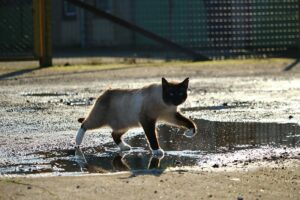At What Age Can A Cat Get Pregnant ?
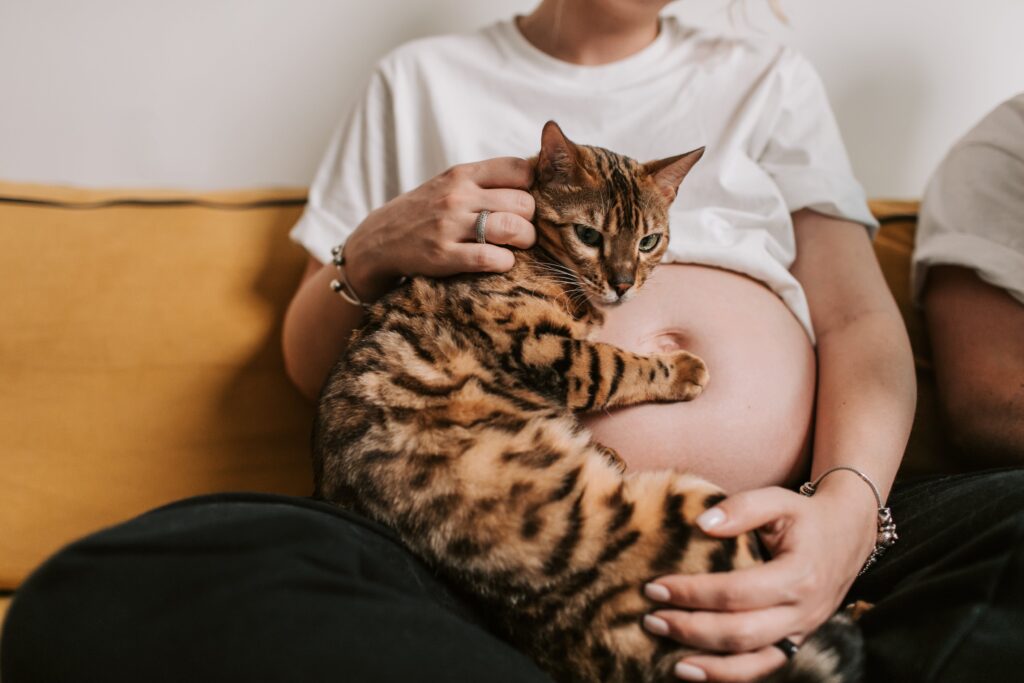
At What Age Can A Cat Get Pregnant? Discovering what to expect when your kitty is expecting is vital for the well-being of both the mother and her future kittens. Gain insights into the duration of cat pregnancies, from conception to delivery, and explore how many kittens a cat can typically have. This knowledge will empower you to provide the best care for your pregnant cat and ensure a safe and comfortable birthing experience.
When anticipating the arrival of kittens, it’s crucial to be well-versed in the stages of a cat’s pregnancy to ensure the health and happiness of your fur baby and her little ones.
A standard cat pregnancy typically spans between 63 to 65 days, approximately nine weeks. Nevertheless, exceptions exist, and cats, like humans, might give birth a bit earlier or later than expected.
If you suspect your cat is pregnant, the best course of action is to confirm it with your veterinarian. For a more comprehensive understanding of the duration of cat pregnancies, explore the insights provided in this article.
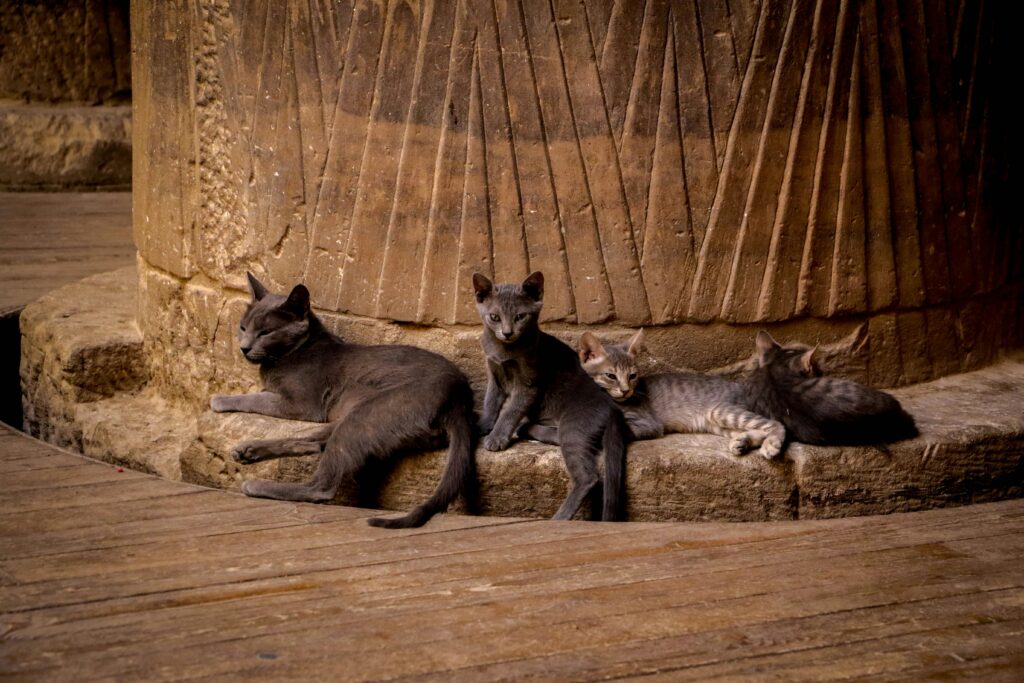
What are the basics of cat reproduction?
At What Age Can A Cat Get Pregnant ? Cats attain sexual maturity, making them capable of breeding, at around 4 months of age. It is recommended to have cats neutered around this age to prevent unwanted pregnancies. The timing of reproductive activity in cats is influenced by an increase in day length, signaling better weather and an abundance of food for the mother and kittens after the 9-week pregnancy.
Female cats experience multiple short periods of heat, each lasting about 14 days. During these cycles, they display flirtatious behaviors, such as rubbing, rolling on the floor, marking, and emitting a plaintive yet demanding vocalization known as ‘calling.’ Male cats, or toms, are constantly seeking receptive females, detecting scent, sound, and body language signals.
Several males may gather around a female, competing for the chance to mate. The female will not accept advances until she is ready, exhibiting the lordosis position where she presents her rump in the air and waves her tail to one side. Mating is brief, and at its conclusion, the female may react aggressively toward the male, possibly related to the backward-facing barbs on the male’s penis.
Cats do not ovulate until they have mated. The release of eggs into the fallopian tubes, essential for fertilization, is stimulated by mating. The female may mate multiple times, often with different males, over a period of four to six days. This extended receptiveness allows the cat to ovulate and choose a healthy, prime male.
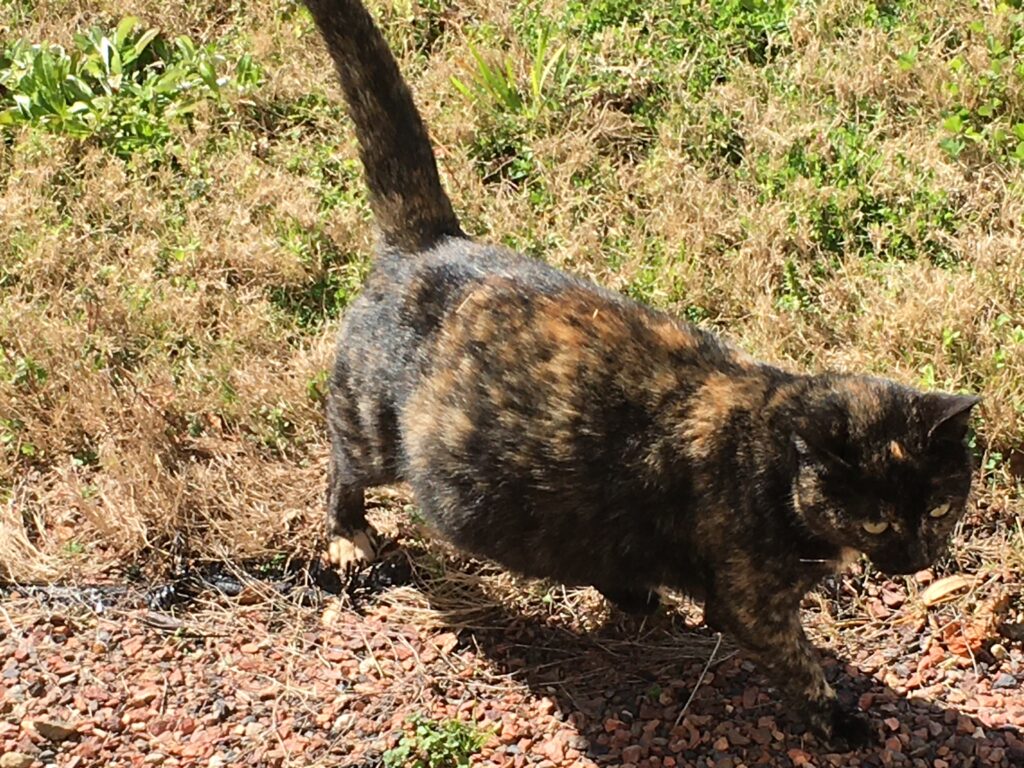
As it takes two days for eggs to reach the uterus and sperm can survive for several days, a litter may have several different fathers. If mating does not occur, the eggs are not released, and the cycle repeats approximately every two weeks. Understanding these reproductive dynamics helps cat owners manage their pets’ breeding and reproductive health effectively.
At What Age Can A Cat Get Pregnant? Are They Pregnant?
At What Age Can A Cat Get Pregnant ? Determining if a cat is pregnant and estimating the number of kittens can be done through various methods. A veterinarian can provide the most accurate confirmation and information. Here are some ways to assess a cat’s pregnancy:
1. Physical Examination:
– Feeling the cat’s belly may provide some indications, but it’s not always accurate.
2. Ultrasonography:
– Best performed at 25–35 days gestation.
– Before 21 days, there might be “false-negative” results.
– Ultrasound can confirm pregnancy but doesn’t provide information on the number of kittens.
3. X-rays:
– Can determine the number of kittens but are not always accurate.
– Usually recommended after 42 days of pregnancy, with the best results around 55 days.
Additionally, there are some visual clues:
– The cat’s belly will start to enlarge around 30 days after mating.
– Nipples may enlarge and redden (known as “pinking up”) 2 to 3 weeks after conception.
It’s essential to consult with a vet for an accurate assessment and to ensure the health of both the mother and the upcoming litter.
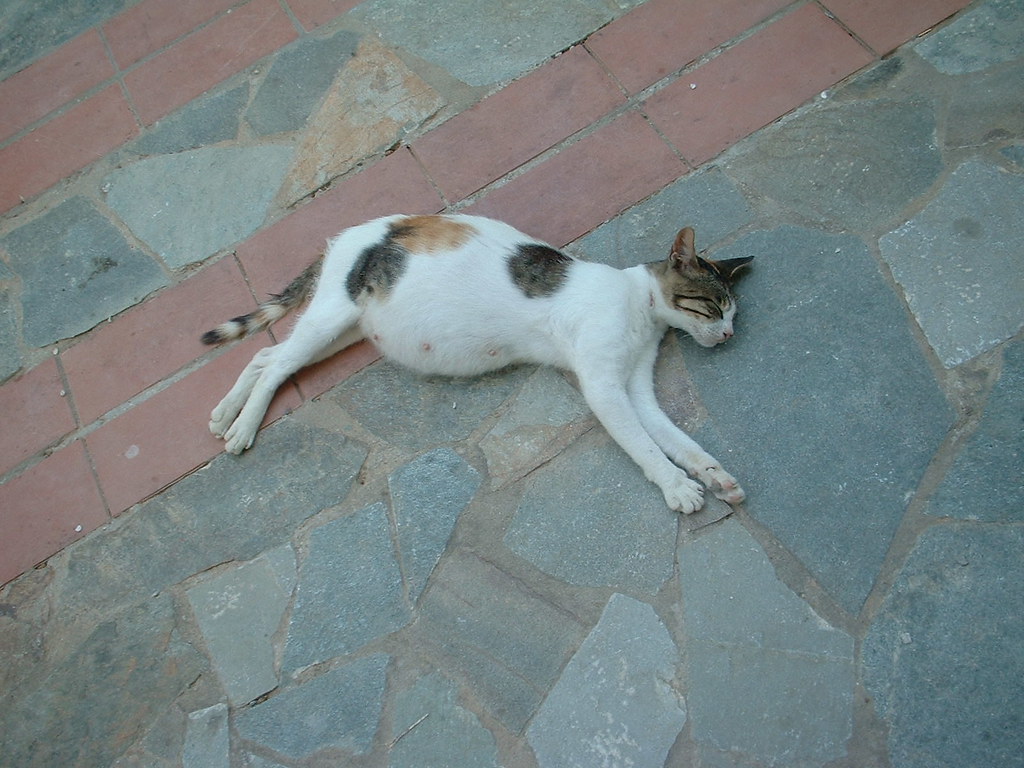
At What Age Can A Cat Get Pregnant? Stages of Cat Labor
At What Age Can A Cat Get Pregnant ? The duration of cat labor is influenced by various factors, particularly the number of kittens the mother has to deliver. The average time for cat labor can range from a few hours to a couple of days, and the process consists of three stages.
1. First Stage: During this initial stage, the mother cat begins nesting, and contractions commence as her body prepares for delivery. If the cat remains in this stage for more than 24 hours, it is advisable to consult with a vet.
2. Second Stage: The second stage involves the actual delivery of kittens. Visible contractions and visible straining by the cat are indicators of this phase. The time taken for each kitten’s delivery can vary, ranging from a few minutes to an hour. If the cat has been straining for over an hour without producing a kitten, veterinary assistance is recommended. After the birth of a kitten, the mother enters a third stage of labor, involving the expulsion of each new arrival’s placenta, a period of rest, and then a return to stage two to deliver the next kitten.
It’s important to be prepared to assist the queen during labor and to communicate with the vet beforehand to understand what to expect and what supplies may be needed. Monitoring the stages of labor ensures the well-being of both the mother and her kittens during this critical time.
Caring for Your Pregnant Queen
During the early stages of pregnancy, some cats may experience symptoms like “morning sickness,” which could manifest as a lack of appetite or vomiting. If these signs persist, it’s advisable to seek veterinary attention. Changes in behavior, fatigue, and increased food intake are common in pregnant cats. Here are some key points:
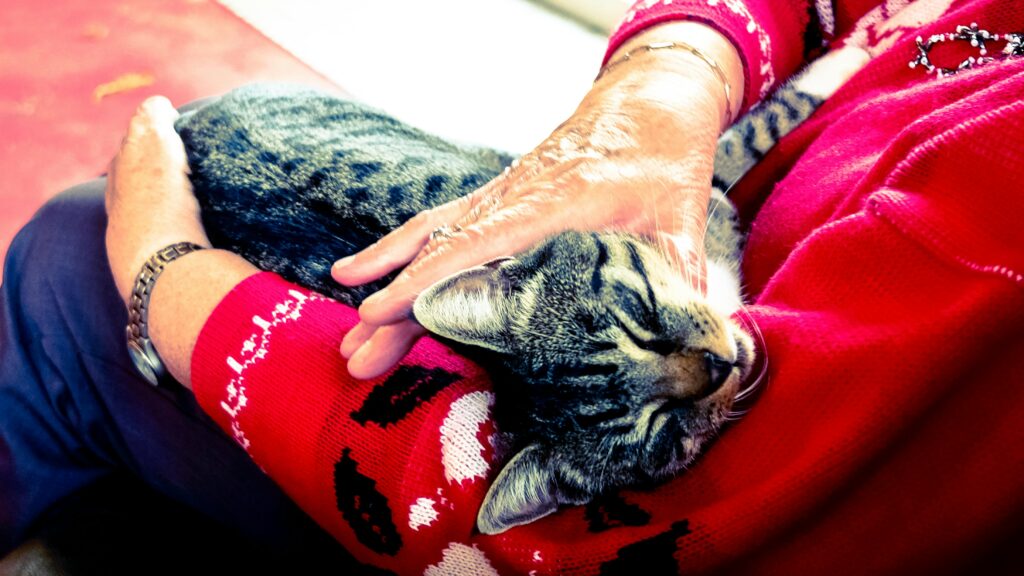
1. Appetite Changes: – Cats may experience a lack of appetite or vomiting in the early stages, which typically fades after the initial weeks.
2. Increased Food Intake: – Pregnant cats may require extra food and calories, eating about 1.5 times their normal diet as pregnancy progresses.
3. Specialized Diet: – Providing constant access to regular cat food or opting for kitten food labeled for pregnant and lactating cats is recommended.
4. Vaccination and Deworming: – Keeping up with vaccination schedules is crucial to prevent the spread of viruses to kittens before birth. Vaccinations and deworming/flea treatments should be discussed with the vet to ensure safety during pregnancy.
It’s advisable to consult with a veterinarian to address specific dietary needs and ensure the overall health and well-being of the pregnant cat and her potential offspring.


